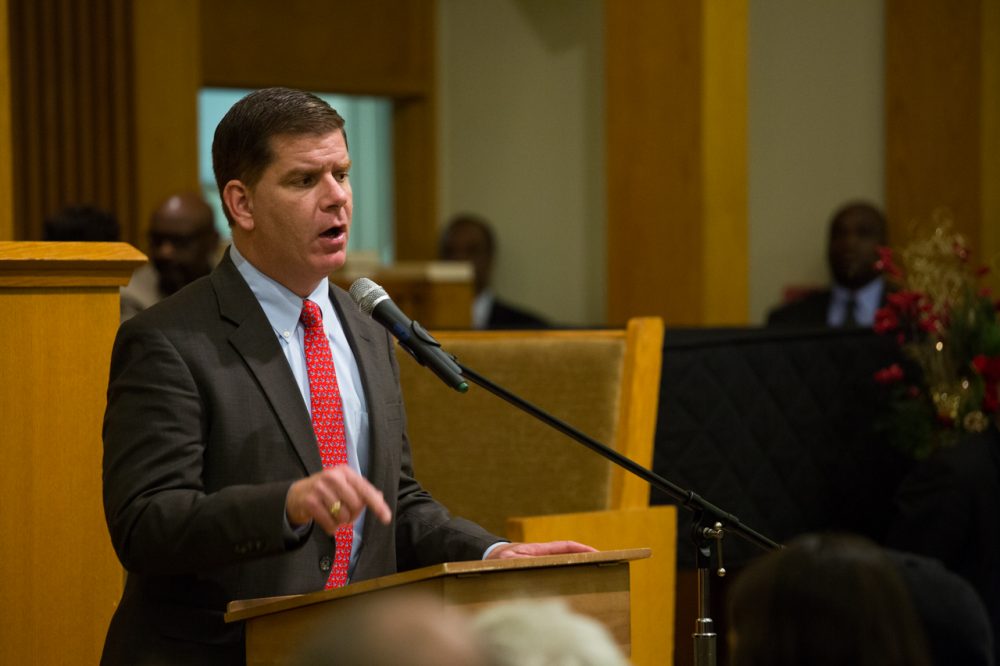Advertisement
Mayor Marty Walsh: Boston Doesn't Need Police Body Cameras

Mayor Marty Walsh appears to have strengthened his position opposing the use of body cameras for police officers in Boston.
After meeting with President Obama at the White House Monday — along with other mayors, activists and law enforcement officials in the aftermath of unrest in Ferguson, Missouri, where a cop fatally shot an unarmed teen in August — Walsh told The Boston Globe that the cameras would not help with fundamental problems between police and communities.
Here's what he told the Globe:
The body camera is a tool that can be used, [but] it goes a lot deeper than that...I’m not going to be distracted by having a conversation about whether or not police have body cameras.
Walsh added that he was instead focused on community relations as well as job and educational opportunities.
His comments go a little further than previous statements on the use of police body cameras in Boston.
Here's what Walsh said in a phone interview with WBUR before the Ferguson grand jury decision:
No. I don’t think it’s needed in Boston today. It’s a tool that people are talking about. There’s an experiment going on in Worcester right now in the city of Worcester with body cameras. That’s something that we’ll see what shows with that experiment. I don’t necessarily feel the body cameras are needed right now. Again, I think it’s all premature to talk that way. Let’s see what happens with the grand jury and what the grand jury decides here.
Following last week's grand jury decision to not indict police Officer Darren Wilson in the death of teenager Michael Brown, protests have swept across the country and St. Louis area, along with continued discussions about how law enforcement engages with communities.
A lot of the discussion since the Aug. 9 shooting of Brown has centered on the use of police body cameras, which many believe will provide greater transparency, bridge distrust between police and the public, and help resolve conflicting accounts of police encounters. Since the Ferguson shooting, police departments across the country have been taking a closer look at implementing them. In September, the U.S. Department of Justice issued guidelines on police body cameras to help law enforcement agencies deciding whether to implement them.
On Monday, Obama took further steps to address what he called "a simmering distrust" between many police departments and communities of color and called on Congress to provide $263 million for police body cameras, training and resources for police reform. Of that federal funding, $75 million would be used to get 50,000 or more police officers to wear body cameras. Obama will also create a task force to develop recommendations on police-community relations.
The issue of police militarization has also come under scrutiny in the wake of the Ferguson case. On that topic, Obama said he wants to avoid a "militarized culture" among police departments. However, the administration said it believes the federal programs that distribute military-equipment to local police departments — like in Massachusetts — improve public safety, but added that more oversight was needed.
